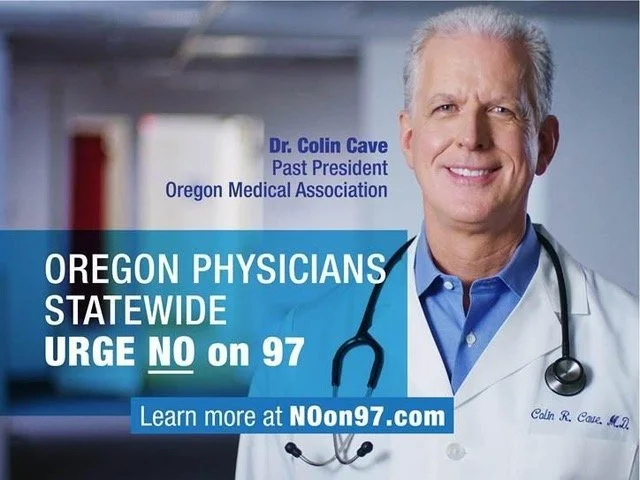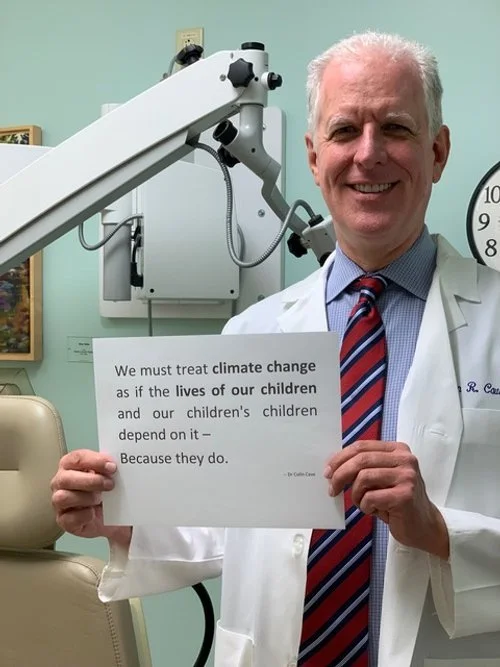
About Dr. Colin Cave
Dr. Colin Cave is a nationally recognized physician leader, advocate, and sustainability champion.
Over the course of a 30-year career spanning clinical care, organizational governance, public policy, and environmental leadership, he has demonstrated the transformational impact of the physician voice.

Colin R. Cave, MD, is a board certified head and neck surgeon with over 30 years’ clinical experience.
Dr. Cave has served as Medical Director of External Affairs, Government Relations and Community Health for a $1B multi-specialty medical group. As chairman of the board during the Great Recession, he guided the group through CEO turnovers and difficult economic times.
Dr. Cave completed undergraduate studies at Stanford University, medical school at the University of California San Francisco, and residency at Stanford University Medical Center. He has served as president of the Oregon Medical Association, Medical Society of Metropolitan Portland, and the Oregon Academy of Otolaryngology.
He has helped lead health care sustainability efforts on a national scale with his leadership positions on the Steering Committee of the National Academy of Medicine (NAM) Climate Action Collaborative and as a co-lead for the NAM Health Care Delivery Working Group.
He has been a Delegate to the American Medical Association House of Delegates and served on the board of America’s Physician Groups.
Dr. Cave’s leadership includes heading up extensive benefit corporation activities and a leading Corporate Social Responsibility program. He also wrote one of the first Climate Action Plans for any major medical group in the United States, and has led regional and national efforts addressing climate change, greenhouse gas emissions, and mitigation and resilience.
Dr. Cave partners with healthcare organizations, medical groups, and communication firms to harness the authentic power of physician voices and expertise.
His mission is simple but profound: to help organizations thrive by advancing sustainability, strengthening governance, improving physician communication and effectiveness, shaping policy, and elevating the patient voice — all by unlocking the full potential of the voice of their physicians.


